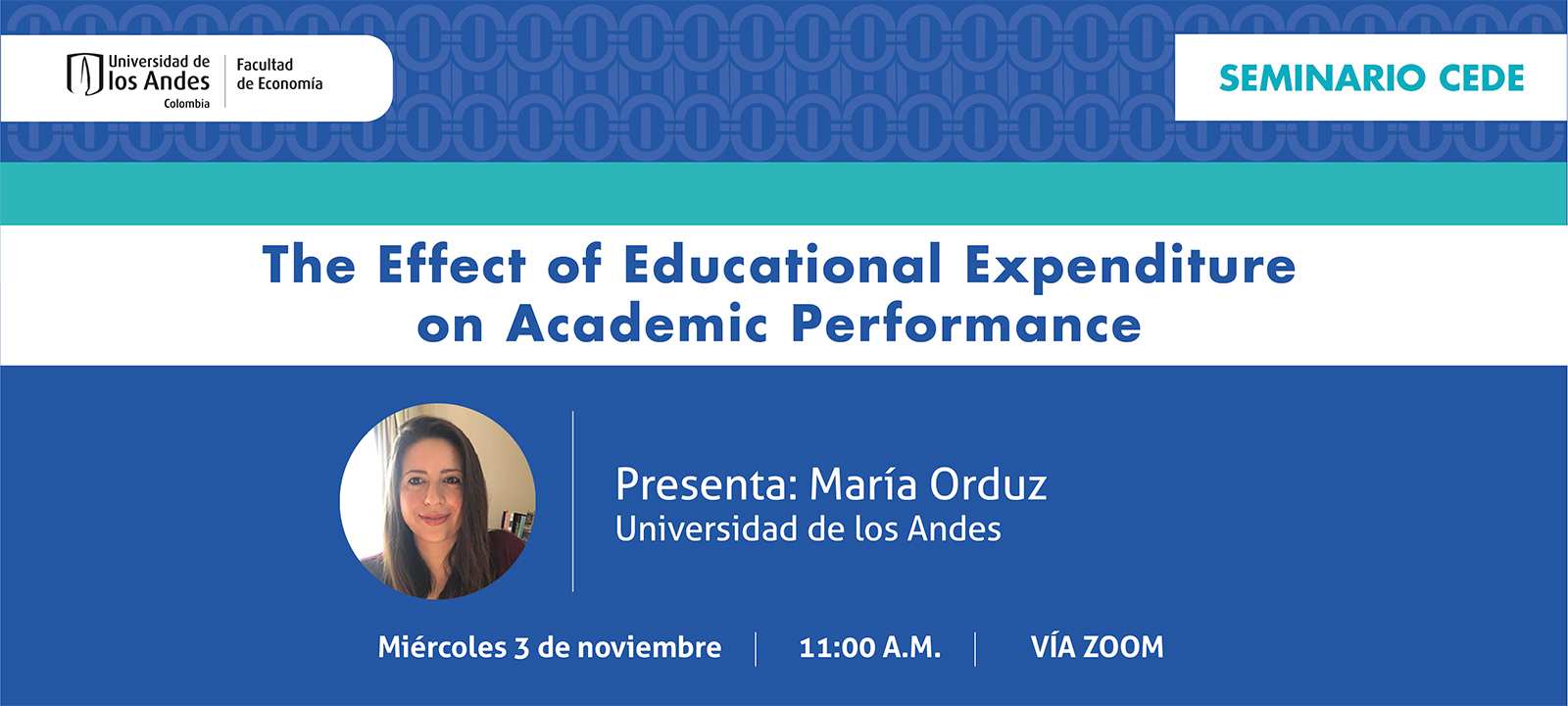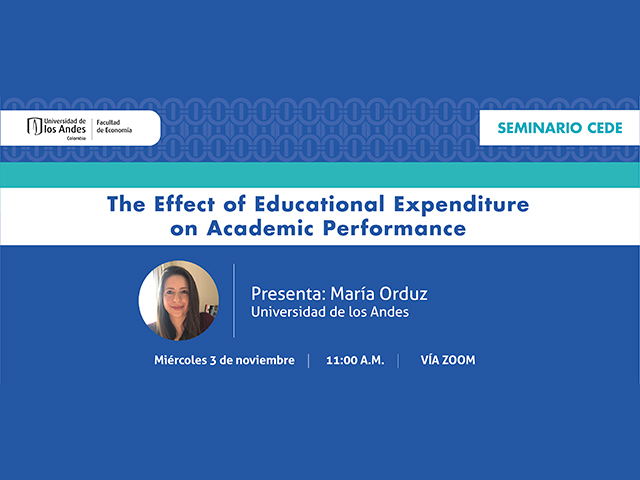Seminario CEDE - María Orduz

This article finnds the effect and mechanisms that Central Government's spending in education has on academic performance, considering a Colombian reform to the educational system as a quasi-natural experiment. The reform generated an exogenous change in the amount of public school spending that each municipality received from the Central Government. To find the causal effect of national expenditure on education in academic results, I use the variation of public school expenditure, the standardized test results for Saber11, and the probability of entering higher education between 2003 and 2013. I use an instrumental variable model and conclude that an increase in spending per student during her academic life of one million pesos (270 USD) generates an improvement of 0.2 standard deviations in the total test score, 0.25 standard deviations in math, and 0.1 in language scores. It also has a positive effect of 3.3 percentual points in the probability of entering higher education. I find that there is significant heterogeneity among centralized and decentralized municipalities in the context of asymmetric decentralization. Furthermore, I find that the students per teacher's ratio, teacher's salaries, and teaching material are relevant mechanisms to explain these effects.

